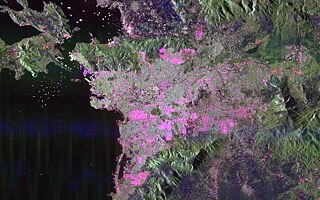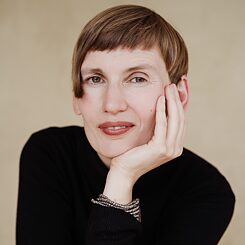“We are witnessing the development of a planetary ecology”
The German philosopher Eva von Redecker talks about new social movements.
By Effie Falida
Eva von Redecker is a modern philosopher, who, through her theoretical studies, has focused part of her research on the subject of the authoritarian character. The German theorist, who studied philosophy in Kiel, Tübingen, Cambridge, and Potsdam, grew up on an organic farm, where she learned a great deal about strawberry farming, farm-to-market direct sales, and horse breeding, which put her off living in big cities. She has developed profound arguments regarding ownership as an institution and as a component of modern society and will present these ideas in a public talk in Athens tomorrow as a guest of the Goethe-Institut. This marks the launch of the “New Old Properties” series. It will be followed on Saturday by a lecture in Thessaloniki as part of the International Book Fair, where she will be offering a philosophical analysis of new activism, as described in her book Revolution for Life.
“The book was written out of my eagerness to understand the moment we are in now,” she tells me during our Zoom discussion. “It’s a combination of a critique of capitalism and a specific interpretation of certain forms of protest that we observe taking place right now. I consider them to be new forms and not a continuation of the civil rights movements – nor are they a classical orthodox configuration in the sense of the Marxist material-economic revolution. I’m referring to Black Lives Matter, the Extinction Rebellion movements for climatic justice, Fridays for Future, the Latin American women’s NiUnaMenos women’s movements, and the protests of Indigenous populations against the Alaska oil pipeline projects. What I found interesting is that while all of these movements refer to life, their slogans focus on death. However, they do not only emphasise crises and disasters. Climate movements and feminist and anti-racist struggles deal with the conditions of survival for all of us. We are in the process of developing a planetary ecology and the question of life is paramount.” Do you think that capitalism will be overthrown by these movements? “As I studied them, I found that they have rich and sophisticated ways of talking about the life people want to have or the life they stand for. It is not just life as a vital expansive force. It is life as an interconnected, polyphonic collective. As a common resource for everyone’s life. I found it important to clarify and explain it. Writing about a revolution for the purpose of life, I refer to the ways in which we can reorganise our daily habits to save life rather than continuing to destroy it. We could care for others instead of oppressing them, renewing instead of exploiting and participating instead of utilising. The common ground of our lives is not the wheel of fortune that capitalism spins according to its purposes, keeping us committed to its interests. It’s a round, blue planet, inhabited by people who can determine their own direction of travel.”'


